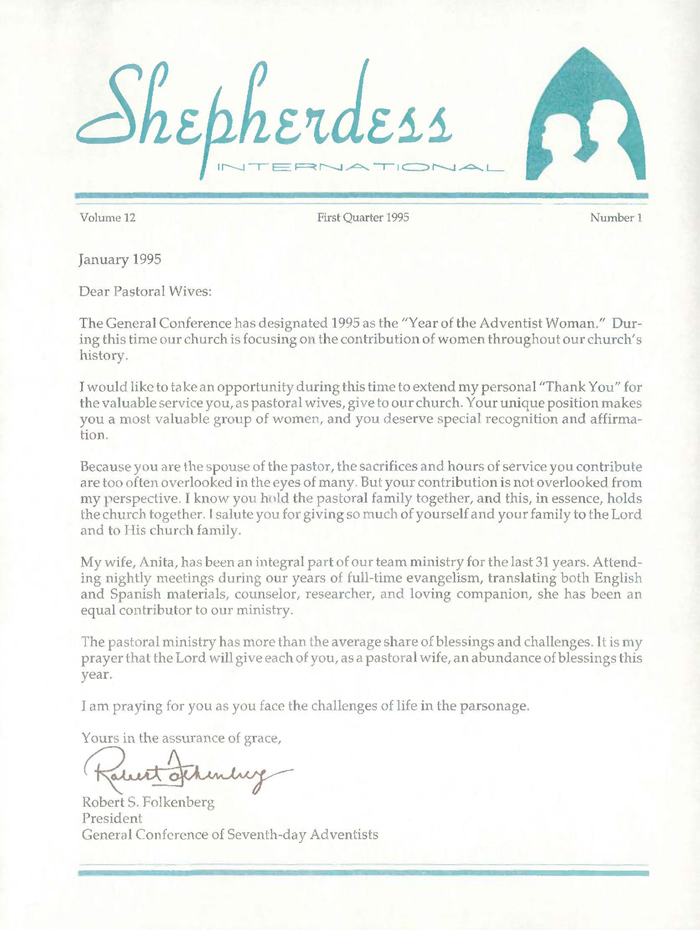As professionals beginning their first job, my husband and I eagerly took up our respective responsibilities and jobs in the Tabasco Conference.
More than anything, we wanted to visit the church members in their homes within our district. Our three children accompanied us.
Sixteen of these churches or congregations are situated in hot climate areas. Along with suffering from the heat, these people have to deal with mosquitoes, horse flies, and other biting insects.
Besides visiting and other work, my husband studied for his theology degree. We felt full of enthusiasm.
A month after leaving Montemorelos and arriving in Tabasco, our two-year-old son, Samuel, became seriously ill. His symptoms signaled intestinal problems. We took him to several doctors, but each time the medicine didn't take effect because he couldn't keep it down. Three sleepless nights crawled by as we battled to lower his temperature and calm his restlessness, but Samuel grew weaker. On the fourth day, as a result of the high fever, convulsions came (I might add, we prayed for him all during this time but nothing happened), and my husband carried our baby to the Health Center—at 6:30 a.m., it wasn't open.
Just then a truck came along, and my husband flagged him down. The driver stopped and gave them a lift to the next city. But there the doctors couldn't do anything either. They puzzled over the question, "Why won't the medicine work?" "Our advice is to take your child to the nearest city, Coatzacoalcos in Veracruz, Mexico."
We wanted to take Samuel to the Southeast Adventist Hospital in Villahermosa, but that would mean a three-hour trip. By now his temperature had soared dangerously high. Coatzacoalcos was only a half-hour drive. Hurrying to find someone to take care of our daughers, a church member came to our rescue and we sped toward Coatzacoalcos.
The doctor in Coatzacoalcos honestly told us the situation: "It is impossible to do anything. He is so severly dehydrated that the blood is congealing in his veins." His voice softened, "However, I will give him one injection in this vein; the other veins are bulging."
"Do you believe in God or in someone else? I've done all I can."
"Oh, yes," my husband nodded. "I am an Adventist pastor. My wife and I have put our trust in God and our child is in His hands."
Now Samuel could barely move his head. He was so thin. It may seem an exaggeration, but the pictures of children with malnutrition in Africa looked fatter than he.
"Would you give me permission to take fluid from his spinal cord and send it to the lab? I'll step out so the two of you can decide."
My husband broke the silence, "It's already 4 p.m. and today's Friday. I have to return to the district as today I begin my first meeting with the lay people. I planned this 15 days ago, so I can't miss it."
"Please don't go," I begged, tears streaming down my face. "I need you to be with me. The doctor is expecting an answer, and I don't want to tell him alone. What if something happens to Samuel?"
"I know, it's hard, honey," he tried to comfort me. "But remember our child is in good hands—God's and the doctor's. Even if I stay here, I can't do a thing. I have responsibilities as a pastor, and this is my first meeting. All the congregations have been notified and I can't let them down. You stay here. We prayed, so don't worry."
I understood, but as a mother, I cried some more.
The doctor returned. "Samuel is having convulsions again, and the fever isn't going down. We're keeping ice packs on his forehead to calm him down, but we need to inject the serum with antibiotics. You see, your son can't stand more than one prick. This has to be done carefully so the needle goes in the right place or it could be fatal. Please help us hold him still."
We stayed in the hospital Friday night, Sabbath passed and then Sunday dawned but no improvement. The lab results finally arrived—the diagnosis, Encephalitis Equina (cerebral horse sickness). At 11 a.m. the doctor warned me, "If your son hasn't improved by 2 p.m., you will have to take him home as medical science can't do anything more for him."
Around 1 p.m., Samuel began to improve. I later learned this was the same time the lay meetings were ending. My husband bravely held those meetings without telling anyone of our trial. He didn't want anyone worrying. But as the meetings ended, he shared with them the burden on his heart. "Our son is in the hospital. I don't know how he's doing but he is sericiusly ill. Please pray for him." Everyone earnestly prayed and that's when Samuel began to improve.
The doctor came in to see his little patient. He exclaimed, "He is showing signs of improvement. This is a miracle! God has worked a miracle!" But he added, "Samuel may be retarded as a result of the cerebral illness."
In a month's time Samuel fully recovered. We praise God for healing him.
The doctors still can't tell us what infected Samuel or how he became sick—maybe it was the water or a mosquito bite—we never knew for sure. There had been an epidemic among the horses and five children died.
We only know that God healed Samuel. Today he is a normal teenager of 13. He enjoys excellent health, and he makes good grades in school.
I am absolutely sure that God rewarded my husband's faithfulness to his duty and then allowed Samuel to get well. I believe if my husband had stayed with us in the hospital, Samuel would have died because we both had prayed and nothing had happened. But God answered the prayers of all the lay people who attended my husband's meetings.
